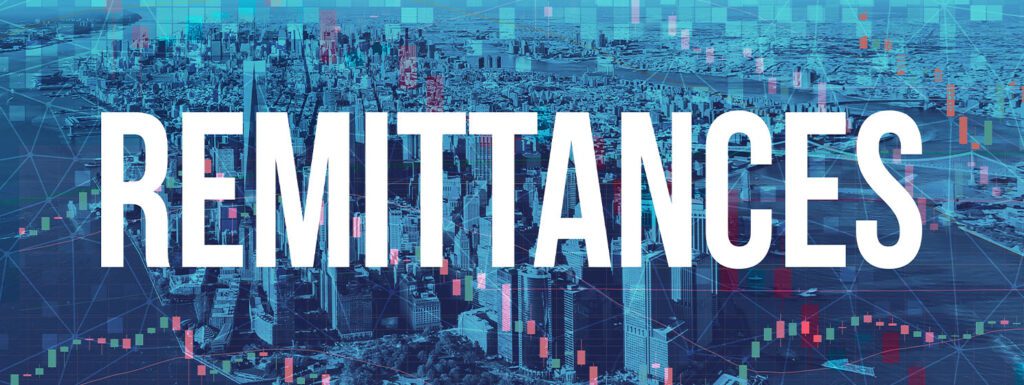Banco Industrial, the largest bank in Guatemala, announced the integration of blockchain into its banking services to improve cross -border transactions for customers.
Banco Industrial collaborates with the Sukupay digital asset service provider to deploy the cross -border payment solution based on blockchain. Sukupay was integrated into the Banco Industrial, Zigi mobile payment application to support international funds.
After collaboration, Zigi users can send and receive funds through borders using digital asset payment rails without additional integrations. Banco Industrial and Sukupay managers claim that customers do not need an international bank account number (IBAN) or a portfolio of digital assets to receive international payments.
However, users will be invoiced at $ 0.99 of flat -rate costs for international transactions, with the CEO of Sukupay, Yonathan Lapchik, confirming the instantaneous regulations for Zigi users.
Lapchik notes that the “invisible” integration of digital asset payment rails in the Tradfi mobile application is the best route to millions of users to web3. He adds that the elimination of technical barriers while offering the same advantages of speed and colonies at low cost will improve adoption measures at all levels.
“This is the only way to change the blockchain to billions of people – by building rails, not by forcing people to learn how they work,” said Lapchik.
A key use case for the new cross -border offer will be to receive international funds, Guatemala receiving up to $ 21 billion in funds per year.
The size of Banco Industrial operations and customers is considered a change of game for Sukupay. The bank extended its scope to the rest of Latin America, with operations strewn through Panama, Salvador and Honduras, which gives it an advantage in the regional markets of the fund.
Latin America raises web 3 -way metrics
According to a report on the channel chain, Latin America is the second rapid growth region for the adoption of web3. The advantage of doping for digital assets stems from an increasing appetite for stabbed in order to preserve the richness of inflation and cross -border payments.
Brazil and Argentina are the leaders of the region, with web3 forming a key element of their financial digitization plans. The capital of Argentina, Buenos Aires, deploys digital identifiers based on blockchain for 3.6 million residents.
While Guatemala is late, the partnership between the largest bank in the country and Sukupay can shake up adoption measures in the coming months.
Wef approves a blockchain -based solution to scan commercial documents
Meanwhile, the World Economic Forum (WEF) supports a new solution to digitize commercial documents using blockchain via a single platform.
According to a report, the WEF will associate with the Iota Foundation blockchain services foundation to deploy a non -profit organization to direct digital trade documents. The Twin Foundation will governed the Worldwide Information Network (TWIN) Trade, a network based on the blockchain, allowing the transfer of data between the participants to the supply chain.
The Tony Blair Institute for World Change and the Chartered Institute of Export and International Trade also support the Twin Foundation.
The Twin Foundation will deploy minimum operating standards and industry best practices for exporters to exchange international commercial documents. Under the twin, exporters can pass from traditional paperwork exchanges to digital documents of documents, save costs and processing times.
The parties may submit electronic lading factors and other commercial documents, including commercial invoices, to other participants in the supply chain. While offering participants in the supply chain the advantages of transparency, Twin allows users to select with whom they wish to share documents while specifying property rights.
However, the Twin Foundation says that it will try to take on governments before extending the offer to businesses and individuals. To begin with, the Twin Foundation will bring Kenya and its customs and income agencies to what seems to be a pilot for the project.
The blockchain-based system will offer border managers impregnable documents, allowing a global pivot of traditional “paper and stamps” that have characterized international trade, according to Jens Munch Lund-Nielsen, head of world trade and supply chains at the Iota Foundation and a WEF advisor.
Emerging technologies of wef champions to improve global economies
The WEF leads the avant-garde of blockchain applications in the key sectors of the world economy. The forum highlighted the potential transformer of token in world finance and investment while looking at the advantages of blockchain in the pivot of green energy.
The WEF has open discussions on the possibilities of digital identifiers based on blockchain, pleading for an international framework. However, the organization plays safely by supporting the digital currencies of the central bank (CBDC) compared to the stablecoins.
Look | Cent: punching digital money and traditional banking services
https://www.youtube.com/watch?v=VM81FHMTUJU Title = “YouTube Video Player” Frameborder = “0” Allow = “Acceleromment; autoplay; clipboard-twri; Encrypted-Media; Gyroscope; Image-In-Picture; Web-Share” Retrmerpolicy = “Strict-Origine-Ohen-Cross-Ovin” Alowlscreen = “”>




